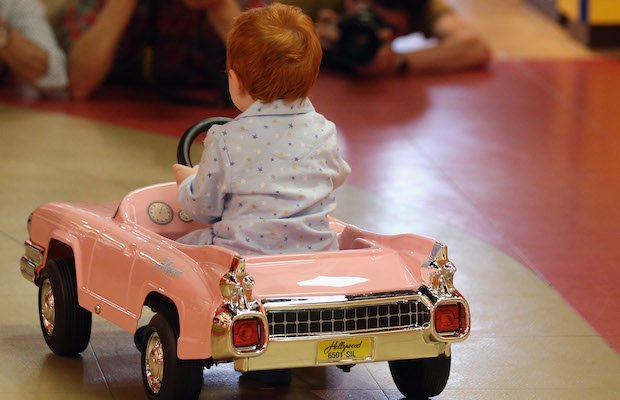How toy businesses’ pinkification limits girls and the economy

The economy is being harmed by toys aimed at boys and girls, according to one minister.
"The way we play as children informs the skills we develop", said Jenny Willott, consumer affairs minister.
While toys marketed towards boys boost interest in science and maths, and girls shy away from those subjects, UK businesses will "miss out on vital talent", she warned.
Speaking in a debate in Westminster this morning, the Lib Dem minister said that children go into the classroom with assumptions they've built on the back of play.
Boys who have routinely experienced the sense of accomplishment associated with designing and building something, which can often can come from playing with what would be seen as a boy's toy, feel more at home with subjects such as maths and science, which utilise such skills more.
Back in December, M&S promised to make all their toys gender neutral by this spring, championing the message campaign groups like Let Toys Be Toys are trying to send out – not to promote toys with a specific gender attached to them.
Willott explained that, by university, boys and girls are "strongly segregated in some areas", with boys dominating in subjects that can lead to the most lucrative careers.
22 per cent of the gender pay gap can be explained by the industries and occupations in which women work, she stressed.
The skills shortages across the science, technology, engineering and maths sectors will not be met "as long as girls continue to feel that that world is not for them". While individuals miss out, businesses miss out on the individuals they need for future development.
Clearly not every girl that plays with Lego is going to be an architect… but why should we limit girls' aspirations at so early an age by making it so rigidly defined?
Willott told MPs that, before entering parliament, she worked as an engineer, across three continents, for two decades.
While speaking, she also highlighted gender segregation as a result of "big-company marketing tactics".
Over recent decades, the toy industry has increasingly dictated what parents should buy through colour-coded gender labelling, she said, which has at once narrowed choice and beefed up profit margins:
As every successful marketeer knows, differentiation makes for greater profit margins and segmentation gives you a bigger overall market, so with three-year-old girls only being able to choose pink tricycles, then the manufacturer can charge more for that special girly shade of pink and the premium princess saddle.